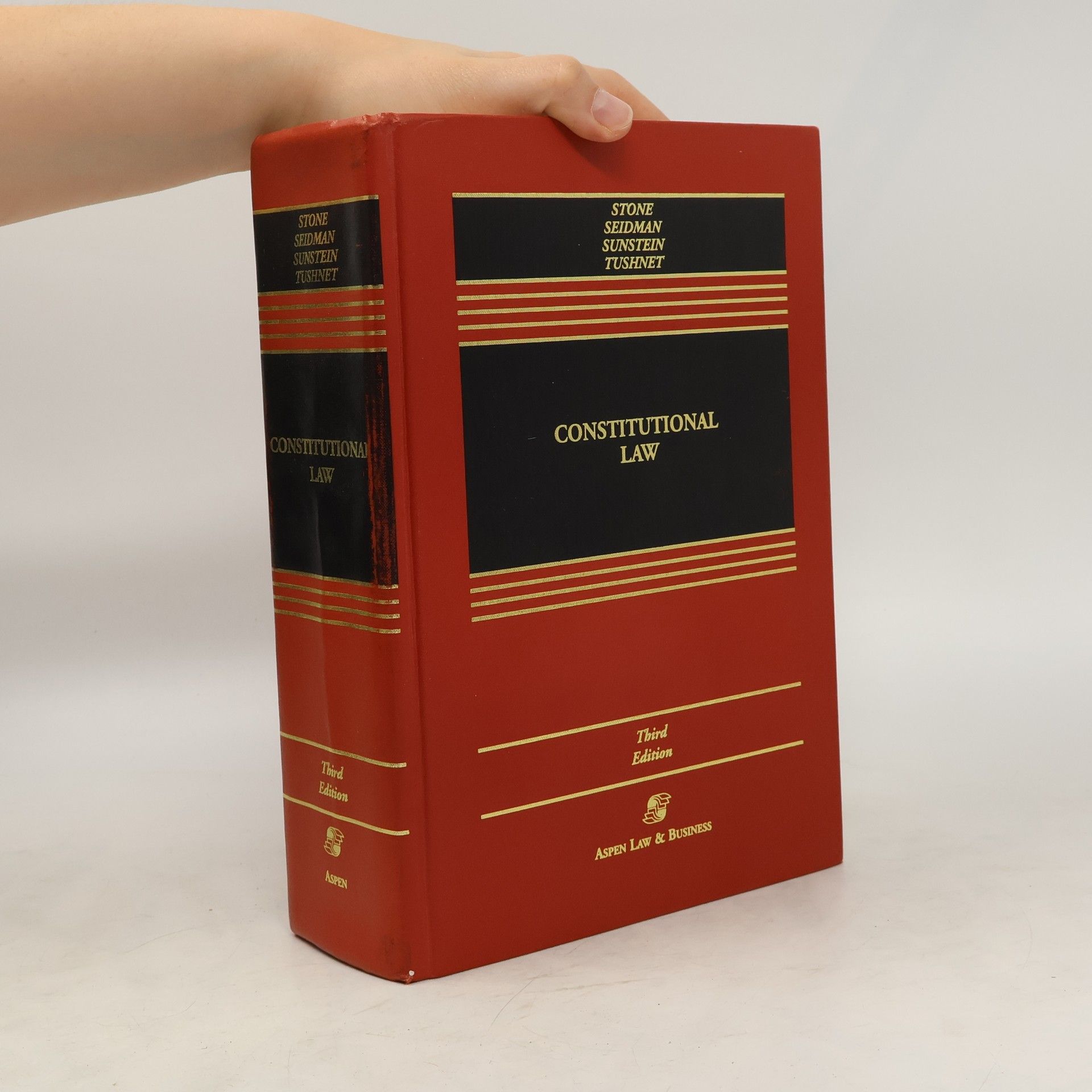In A Legacy of Discrimination, Lee C. Bollinger and Geoffrey R. Stone trace the history of affirmative action and the legal challenges it has faced over the decades. They introduce evolving, affirmative-action case law that sought to dismantle racism and enable social, educational, and economic progress for Black people and other minority groups. They demonstrate how and why affirmative action policies stand on firm legal ground and must remain protected. A timely and robust overview of affirmative action, this book will serve as a powerful defense of a policy that has accomplished more than most people realize in making America a fairer and more inclusive country.
Geoffrey R Stone Book order (chronological)
Geoffrey Stone is a distinguished legal scholar whose work centers on constitutional law and freedom of speech. His influential books explore the tensions between governmental power and civil liberties, particularly in times of crisis. Stone delves into the historical evolution of crucial legal concepts, advocating tirelessly for the importance of free thought and expression in contemporary society. His analyses offer profound insights into the fundamental questions surrounding the balance between security and liberty.



Democracy and Equality
- 216 pages
- 8 hours of reading
From 1953 to 1969, the Supreme Court under Chief Justice Earl Warren achieved significant milestones in American constitutional law, declaring racial segregation and laws against interracial marriage unconstitutional, expanding citizens' rights to criticize public officials, ruling school prayer unconstitutional, and ensuring the right to legal counsel for the accused. Despite these accomplishments, conservative critics accused the Warren Court justices of overstepping their authority by imposing personal opinions on the nation. In this evaluation, legal scholars Geoffrey R. Stone and David A. Strauss argue that the Warren Court's interpretation of the Constitution aligned with the fundamental values of democracy and equality. They explore the Court's key decisions, providing historical and legal context, detailing the reasoning behind each case, and illustrating how the justices upheld their essential responsibilities. This analysis, commemorating the 50th anniversary of the Warren Court's conclusion, defends its legacy against decades of conservative criticism. It asserts that the Warren Court's constitutional approach was not only justified but also superior to the increasingly conservative interpretations that have characterized the Supreme Court in recent years.
This 1996 edition of the phenomenally popular CONSTITUTIONAL LAW, by Stone, Seidman, Sunstein, and Tushnet, continues to offer the most vibrant and challenging set of teaching materials available for your course.